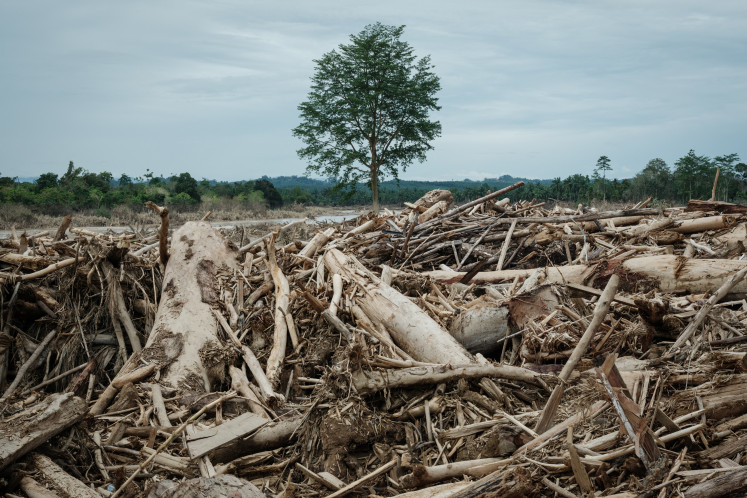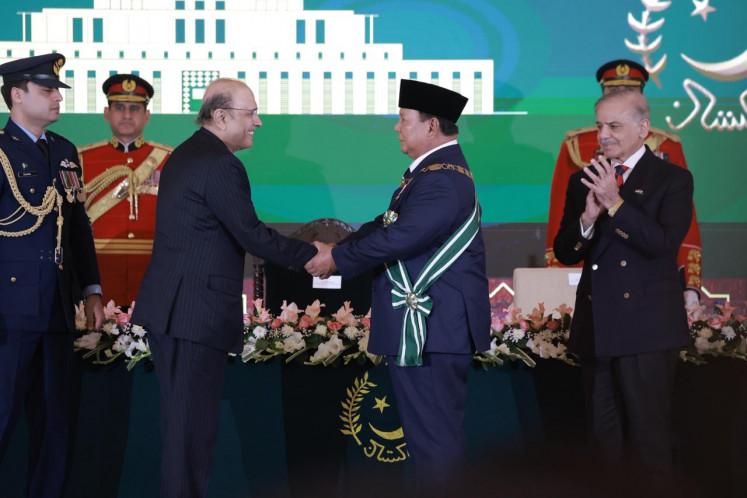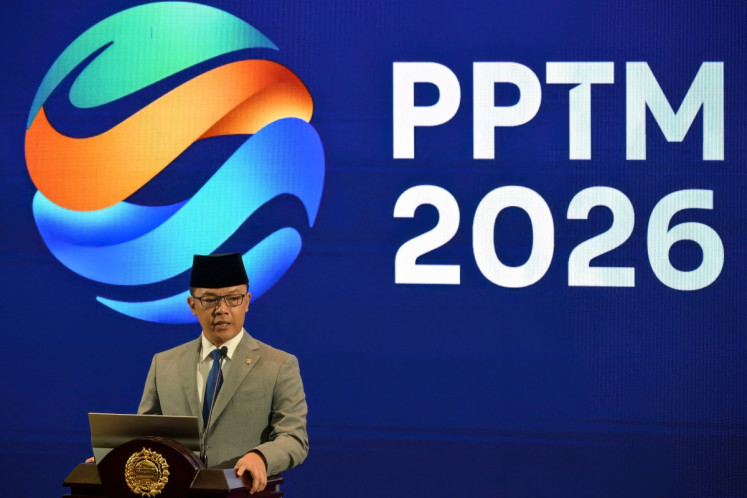Popular Reads
Top Results
Can't find what you're looking for?
View all search resultsPopular Reads
Top Results
Can't find what you're looking for?
View all search resultsA ‘pandemic world’ needs multilateral solutions
But as the European Union, we realized quickly COVID-19 could only be defeated with a global approach and cross-border coordination.
Change text size
Gift Premium Articles
to Anyone
C
OVID-19 has pushed the world into the worst global crisis since the Second World War, affecting all aspects of life, with consequences for health, economics and security, triggering social stress and political unrest.
The crisis has accelerated pre-existing trends, such as rising inequalities and geopolitical tensions. It is a commonplace that the pandemic is reshaping our world. But what form and how different the world will become depends on the choices we make.
Looking back to the beginning of the pandemic, we saw a tendency to “turn inward” – a tendency that regularly comes with crises. But as the European Union, we realized quickly COVID-19 could only be defeated with a global approach and cross-border coordination.
Internally, our reaction and coordination was bumpy at the very beginning, EU member states were inclined to let everyone fend for themselves. But genuine acts of solidarity soon followed, with many countries taking patients from other EU member states, and sending emergency equipment to those most in need.
In the summer, EU leaders agreed on an unprecedented 1.8 trillion euro (US$2.13 trillion) “Next Generation EU” package. For the first time, it was agreed to issue large-scale common debt and allow fiscal transfers to cope with the economic impact of the pandemic and to prepare funding for a green transition and securing Europe’s digital future.
While fighting the virus and its consequences at home, Europe also stepped up efforts to support partner countries in the fight against the pandemic. In what we call “Team Europe”, the EU and its member states helped together our partners to respond to the immediate health crisis, to strengthen health and sanitation systems, and to mitigate social and economic consequences.
Our actions were based on a key recognition: no one will be safe until everyone is safe and a “pandemic world” needs multilateral solutions. We lived by this motto even when others were going it alone.
And we will continue doing so now, at the moment we hear encouraging news on the vaccination front. To benefit from these promising achievements, we must avoid “vaccine nationalism” and “vaccine diplomacy”. Like the “mask diplomacy” of early 2020, some countries may link access to much-needed medical treatments to political compliance or obedience. The EU will insist on the opposite approach: vaccines must be treated as a global public good and distributed based on medical needs.
In times of COVID-19, Europe is determined to develop a stronger partnership and cooperation with multilateral actors at global, regional and national levels.
But the EU cannot be multilateralist on its own. We see like-minded countries in Asia as key partners for Europe to design the rules-based international order of the future.
Because we share together a desire to take our future in our own hands. To be a player and not a playground in a world of increasing geopolitical competition.
***
The writer is European Union high representative for foreign affairs and security policy/vice president of the European Commission.










